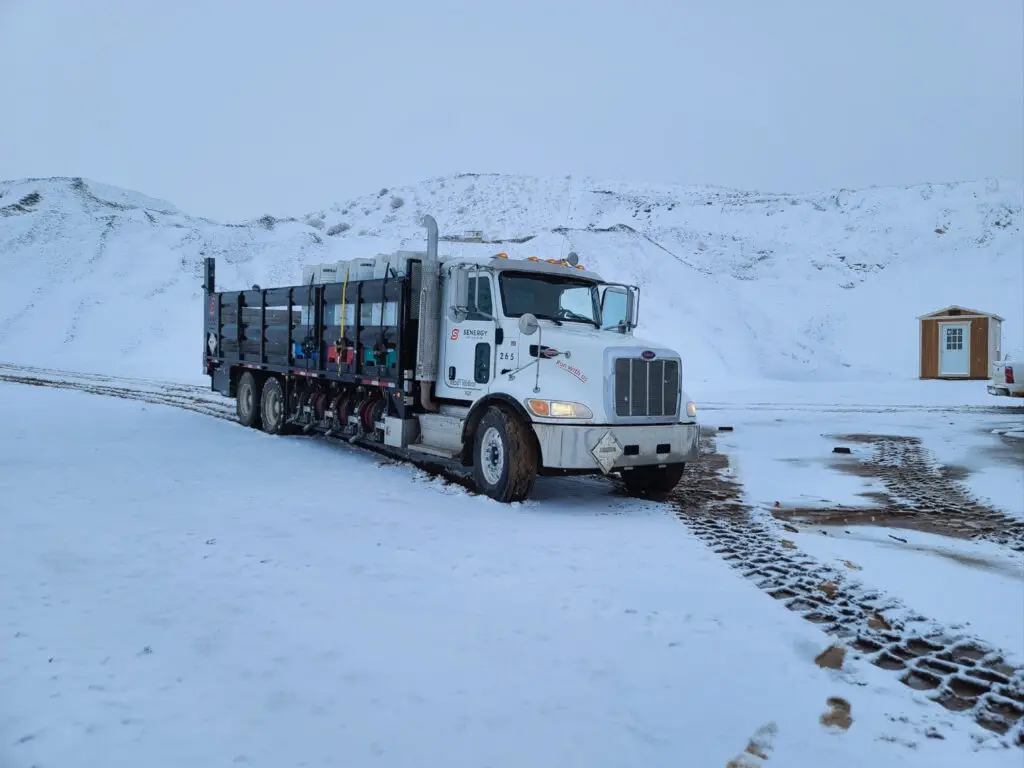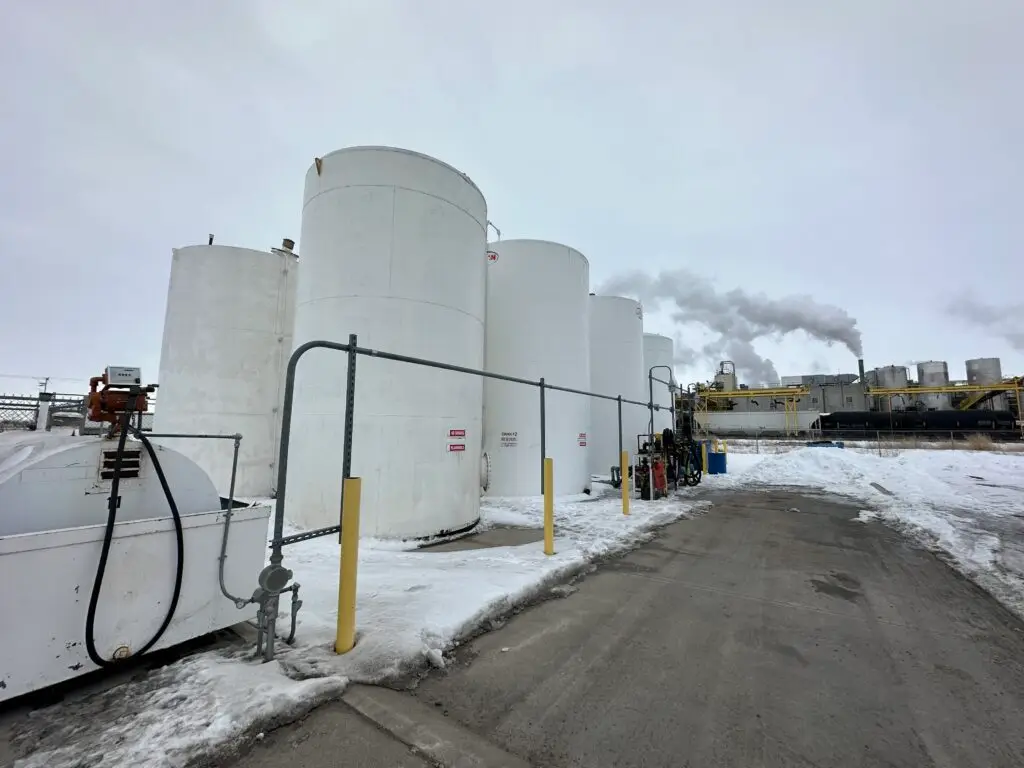If you manage equipment for a construction site, a fleet of vehicles, or run an auto shop, the impending cold can be a bit daunting. The last thing anyone wants is for their machinery or vehicles to struggle when the temperatures plummet. We’ve seen firsthand how a good lubricant can save the day, and we’re here to share some insights on how to choose the best lubricants for winter conditions.
In regions like the Southwest and Rockies, winter can throw a few curveballs your way. Temperatures can fluctuate dramatically, often going from mild to downright frigid overnight.
Cold weather can significantly impact your equipment. When the temperature drops, oil can thicken, making it difficult for it to flow through your engine. That’s where a high-quality winter lubricant comes into play. Not only does it ensure smooth operation, but it also helps extend the life of your machinery, which is something all of us can appreciate.


Using an oil that is too thick for cold weather conditions can lead to significant issues. For instance, if a crew pours oil with high viscosity during frigid temperatures, it can be like trying to pour molasses in January. The equipment may fail to start, leading to wasted time and productivity as efforts are made to get it running again. In such situations, opting for a lower-viscosity oil, like a 5W-30, is advisable. The lower first number in the viscosity rating indicates that the oil flows better at cold temperatures, ensuring that your engine receives the necessary lubrication right from the start.
Now, this is a hot topic in the industry—synthetic versus conventional oils. From our experience, synthetic oils generally take the crown when it comes to winter performance. Here’s why:
Another essential factor to consider is the pour point of your oil. This is the lowest temperature at which the oil will still flow. In our region, where temperatures can drop unexpectedly, you want a lubricant with a low pour point.
Failing to use the appropriate oil for cold weather can lead to severe consequences. For example, if a machine is left outside overnight in freezing temperatures, the oil can freeze solid. This can result in significant challenges when trying to get the equipment operational again.
In addition to choosing the right base oil, it’s also worth considering cold-weather additives. These can make a significant difference in performance when the temperatures drop.
These are essential for preventing your oil from gelling in extreme cold. For instance, if you’re working with diesel engines or heavy machinery, using oils with anti-gel additives can keep things running smoothly, even in the harshest winter conditions.
Switching to lubricants with cold-start additives can lead to significant benefits for fleet management. For instance, using these specialized lubricants can drastically reduce engine wear and failure rates during the winter months. Although this switch may involve a small initial investment, the long-term savings in maintenance and repairs can be substantial.

If you’re managing heavy machinery, you need to ensure your equipment can handle the cold. Look for synthetic oils that have been specifically formulated for cold-weather performance.
Recommendation: It is essential to choose oils that maintain low viscosity and include anti-wear additives, especially in winter conditions. Failing to do so can lead to costly downtime due to equipment failure. Ensuring that the right oil is selected and checked before winter can help prevent these issues and maintain optimal performance throughout the season.
Managing a fleet of vehicles means you must ensure they perform reliably in winter. You can’t afford for trucks to sit idle because their oil thickened overnight.
Recommendation: Investing in synthetic oils with low pour points and cold-start additives can significantly enhance performance in winter conditions. These oils ensure reliable engine starts in cold temperatures, eliminating struggles during morning starts and improving overall efficiency for fleet operations.
As an auto shop owner, you play a vital role in helping your customers prepare their vehicles for winter. It’s essential to recommend the right winter-grade oils to keep them safe on the road.
Recommendation: Stock up on low-viscosity oils and pour-point-tested products. Educate your customers on the importance of winter lubrication, and you’ll earn their trust (and their business) for years to come.
Using oils with high-temperature ratings during winter is a no-go. You wouldn’t want to pour syrup into a cold engine, right?
Don’t overlook the importance of additives during the colder months. They’re designed to enhance performance, and you’ll want every advantage you can get in those freezing temperatures.
The way lubricants are stored can significantly impact their performance. It is crucial to keep oils in a controlled environment to prevent degradation. If lubricants are left outside in extreme cold, they can thicken, leading to potential operational issues and increased cleanup efforts.

At Senergy Petroleum, we understand the unique challenges you face during winter. Our team is here to help you select the right lubricants tailored to your specific needs and equipment.
Whether you need advice on which lubricant is best for your heavy machinery or help choosing oils for your fleet, we’ve got you covered. Our experts are just a call away!
We offer a range of winter-grade oils and additives to keep your equipment running smoothly, no matter how cold it gets.
Choosing the right lubricants for winter is not just about keeping your equipment running; it’s about ensuring efficiency, saving money, and avoiding costly downtime. Don’t wait until the cold hits to make your preparations—start now, and you’ll thank yourself when the temperatures drop.
If you have any questions or need personalized recommendations, reach out to us at Senergy Petroleum. We’re here to help you weather the winter without a hitch!

